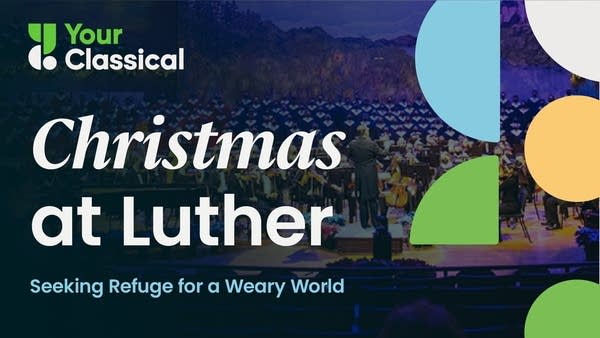
"Writing this book was not fun," says Michael Marissen at the end of the introduction to his new book, Tainted Glory in Handel's Messiah (Yale University Press). Marissen is referring both to the arduous historical research the volume required and to the fact that being its author puts him in the role of splashing cold water on the world's adoration for one of the most popular musical works of all time: Handel's towering 1741 oratorio on the life of Christ.
Marissen, the Daniel Underhill Professor of Music at Swarthmore College, argues that Messiah is shot through with vindictive references to Judaism.
"The Hallelujah chorus," writes Marissen, "was designed in a way that apparently rejoices, in significant part, over the destruction of Jerusalem and the Second Temple in the year 70 CE, a horrific event that until recently most Christians construed as divine retribution on Judaism for its failure to accept Jesus as God's promised messiah."
Marissen previously advanced a concise version of this argument in a 2007 New York Times article. "Reader reaction was swift, intense and rigorous," explains a press release announcing the publication of Marissen's new book, "with many cries of disbelief and for more proof. Tainted Glory is that proof."
Marissen's argument pivots on the way that Bible passages and excerpts from the Church of England's Book of Common Prayer were adapted into a libretto by Charles Jennens, a friend of Handel's and, in Marissen's description, "a gentleman scholar of considerable erudition." Jennens argues that throughout Messiah, these passages were purposefully edited so as to cast aspersions on Judaism and to highlight the consequences Jews had faced for their failure to recognize Jesus as savior.
Messiah was Jennens's idea: the writer approached Handel — with whom he had previously collaborated on an oratorio (Saul) and a cantata — with the libretto, proposing that the composer use it as the basis of a new oratorio. Marissen argues that, though the anti-Judaic textual decisions were made by Jennens, Handel knew what was going on and underscored Jennens's allusions with musical cues appropriate to the intended meaning.
"Jennens and Handel," writes Marissen, "as you'd expect, followed the social and religious spirit of their times, and I don't intend to condemn, excuse, or laud these great men for this. Instead, I hope to raise awareness about the many ideas, today insufficiently understood and often disquieting, that are reflected in Handel's still-living and ever-present work."
One reason Marissen's argument has been controversial is that it rests on close reading of textual issues that may seen incredibly arcane to anyone who's not a Biblical scholar. Marissen says, though, that the textual edits made by Jennens weren't subtle to his contemporaries.
"Those who heard Messiah for the first time and subsequently during the later eighteenth century would have readily understood the theological and religious contexts within which Messiah was written — and fairly readily recognized the sources that were being quoted, including the phrases and sentences that were omitted. But that is not the case today."
Marissen notes, for example, that Jennens's substituting of "nations" for the standard "heathen" in one of the Psalms preceding the Hallelujah chorus ("Why do the nations so furiously rage together, and why do the people imagine a vain thing?") was in keeping with the recommendation of the Biblical scholar Henry Hammond, whose commentary on the Scriptures was key to Jennens's work, that using the word "nations" would more accurately point a finger what he viewed as the specifically offending Jewish nation, or people, than the generic "heathen."
Further, asks Marissen, what are those verses — taken from Psalm 2 — doing there in the first place? Other verses in this section of the oratorio are drawn from Acts and Revelation. "The libretto is designed," writes Marissen, "in a way that, among other things, prophetically reminds listeners of Jewish Jerusalem's initial, crucifixion-provoking hostility toward Jesus. The libretto is further designed in a way that then rejoices at, among other things, the ensuing destruction of the city and its Temple. That is to say, the Hallelujah chorus apparently exults, in significant part, over what would be taken as the essential deathblow to Judaism, with Christianity understood as sole legitimate heir of God's promises to ancient Israel."
Can we ever listen to Messiah in the same way again? Marissen hopes not, much as he loves the work musically. "Here's the agonizing heart of the problem as I see and hear it: the magnificent joy of Handel's music is not merely at odds with a dreadful anti-Judaic message in Messiah; it is at the very same time a scandalous affirmation of that message. [...] Can such life-enhancing music possibly also be invested with life-defeating hatred? It appears that it can."
In a recent interview with Publishers Weekly, Marissen elaborated on his view. Saying that he likes Messiah as a musical composition "more than ever" despite his research, the author calls on his readers to acknowledge its deeply problematic aspects.
"It's an incredibly glorious piece," says the author, "but it's also tainted. However, the music expresses this tension that exists between aesthetics and ethics, and I think that to be able to live in that tension is what it means to be a serious religious person."
Love the music?
Show your support by making a gift to YourClassical.
Each day, we’re here for you with thoughtful streams that set the tone for your day – not to mention the stories and programs that inspire you to new discovery and help you explore the music you love.
YourClassical is available for free, because we are listener-supported public media. Take a moment to make your gift today.










